100 years of Bollywood: The films that started it all
Satyawadi Raja Harishchandra by Dadasaheb Phalke was the first full length feature film in India. But it was in the 1930s, with the introduction of sound in Alam Ara, that cinema took the first steps to melding itself into an essential part of the Indian identity, ecentually evolving into the behemoth called Bollywood..
As Indian cinema completes 100 years, here is a look at the greatest movies from the 1930s and 1940s.

Alam Ara (1931)
Director: Ardeshir Irani
Cast: Master Vithal, Zubeida, Prithviraj Kapoor, Jilloo
The first talkie, Alam Ara, took months to make. A period fantasy about an ageing king and his two rival queens, the movie changed the nature of Indian filmmaking forever.
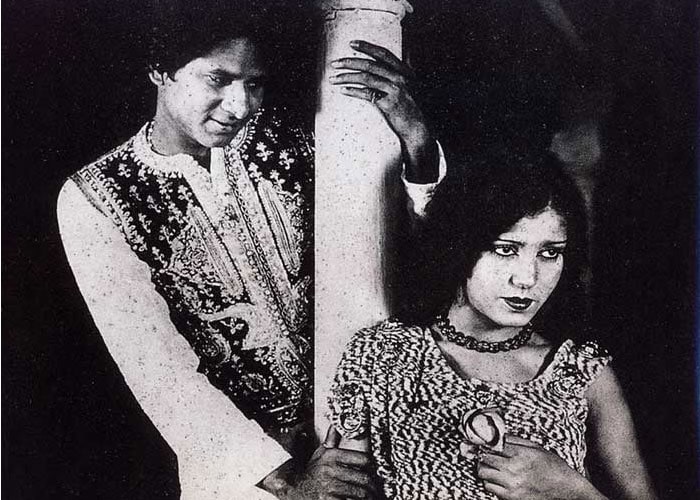
Hunterwali (1935)
Director: Homi Wadia
Cast: Fearless Nadia, Sharifa, Gulsham
Actress Mary Evans aka Fearless Nadia is most remembered as the masked, cloaked, whip wielding adventuress who protects the poor and punishes the guilty. The Hunterwali brought to Indian cinema its first action heroine.
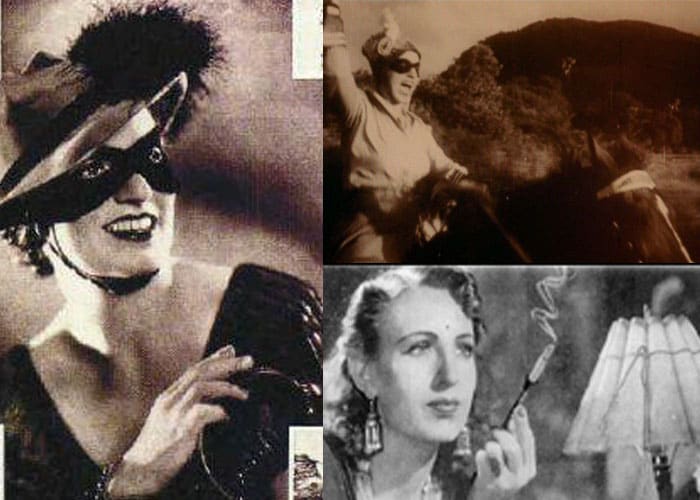
Devdas (1936)
Director: P C Barua
Cast: P C Barua, K L Saigal, Jamuna Barua, T R Rajakumari
Nearly two decades before Bimal Roy directed Dilip Kumar in the classic tale of the lovelorn Devdas bent on self-destruction, Assamese director P C Barua adapted Sarat Chandra Chattopadhyay's masterpiece for the big screen. It starred Barua himself as the eponymous hero, Jamuna Barua as Paro, and singer-actor K L Saigal as Chunnilal.
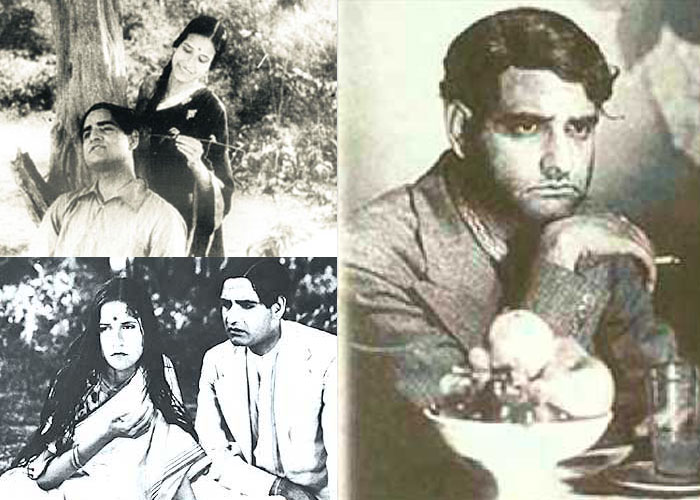
Achhut Kanya (1936)
Director: Franz Osten
Cast: Ashok Kumar, Devika Rani
Thirties era Bollywood tackled many socio-economic themes that would later be left to parallel or art-house cinema. Among these, perhaps the most famous was this tale of illicit romance between an untouchable girl and a high caste boy.
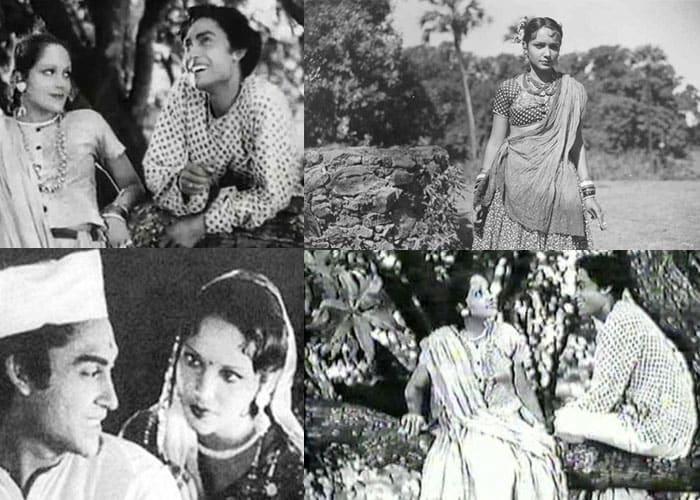
Zindagi (1940)
Director: P C Barua
Cast: K L Saigal, Jamuna, Pahadi Sanyal
One of the highest grossing movies of the era, Zindagi revolved around an unemployed university graduate and is described as Barua's most beautiful films.
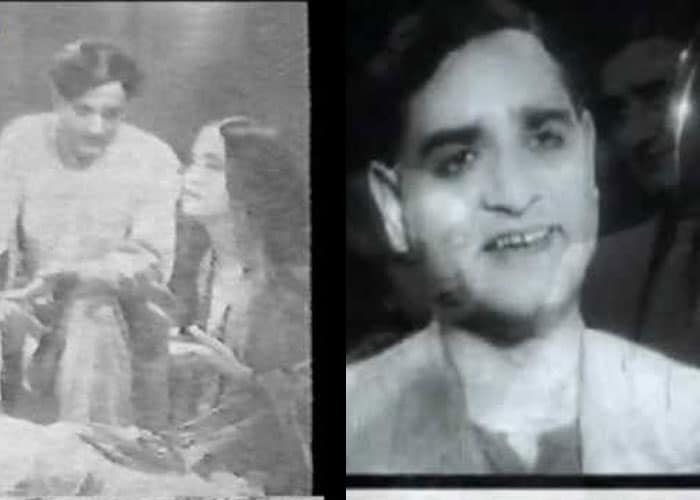
Bandhan(1940)
Director: N R Acharya
Cast: Leela Chitnis, Ashok Kumar, Suresh
As the pyrotechnics of World War 2 spread out from Europe, Indian cinema quickly acquired deeply patriotic undertones. A stirring song from this movie, Chal Chal Re Naujawan, was written by poet Kavi Pradeep, who was to later write Aye Mere Watan Ke Logo, and established his reputation as a nationalist writer.
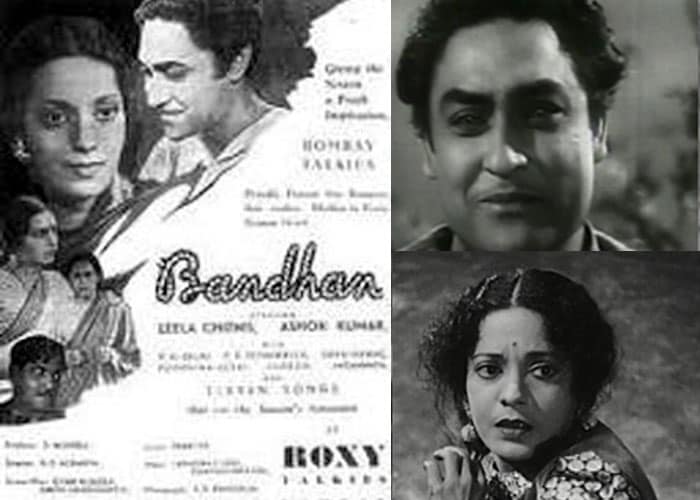
Kismet (1943)
Director: Gyan Mukherjee
Cast: Ashok Kumar, Mumtaz Shanti, Shah Nawaz
One of the longest running movies in the history of Indian cinema, Gyan Mukherjee's Kismat ran for 150 weeks (three years). Produced by Bombay Talkies, it was the first film to feature an anti-hero character, broke social taboo by showing pregnancy out of wedlock and established Ashok Kumar, who played a double role in the film, as a superstar.
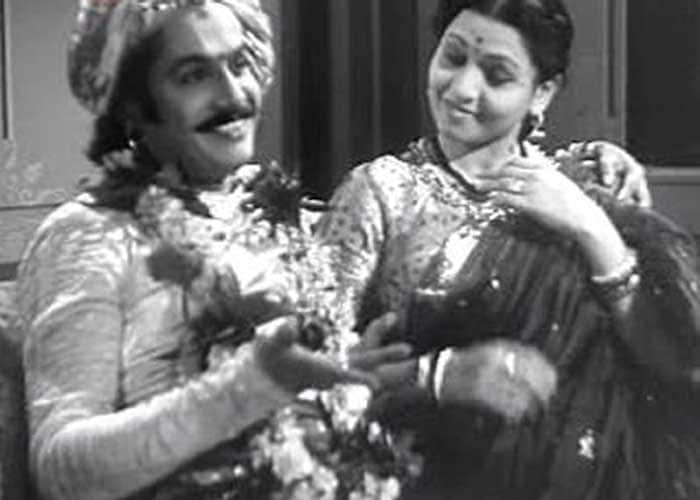
Tansen (1943)
Director: Jayant Desai
Cast: K L Saigal, Khursheed Bano, Mubarak, Nagendra, Kamala Chatterjee, Bhagwandas
A blockbuster musical hit, Tansen featured the singing sensations of the era, K L Saigal and Khursheed Bano, in the lead roles of Tansen and Tani respectively. The was music composed by Khem Chandra Prakash.
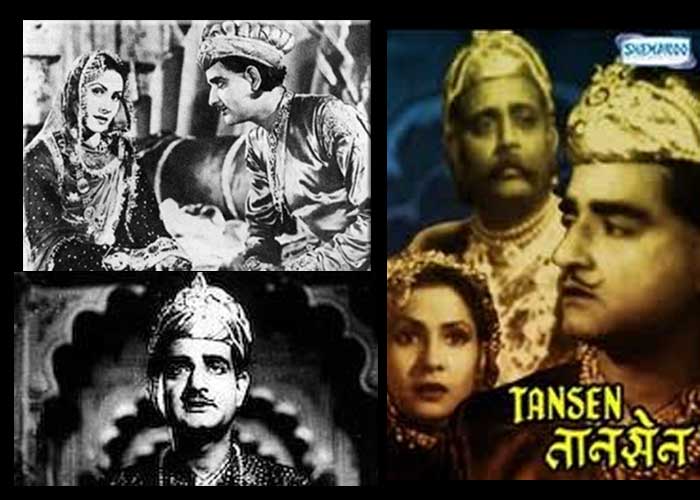
Rattan (1944)
Director: M Sadiq
Cast: Swaran Lata, Karan Dewan, Amir Banu
The film that made the careers of music composer Naushad and singer Zohrabai Ambalawali was notable for it's refreshingly un traditional portrayal of interpersonal relationships and male attitudes.
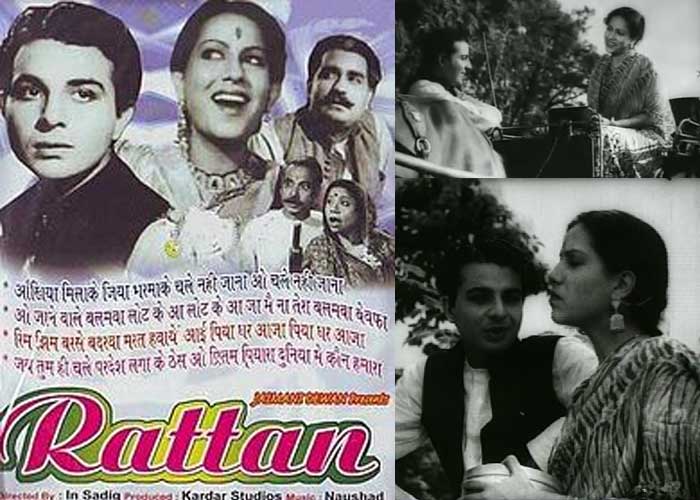
Gaon Ki Gori (1945)
Director: K Amarnath
Cast: Noorjahan, Nazir, Durga Khote
The rustic setting and a melodious soundtrack by Shyam Sundar made this film a superhit. It was among singer-actress Noorjahan's biggest successes and also marked Mohammed Rafi's first recorded song in a Hindi film, the duet Aji dil ho kaaboo mein.
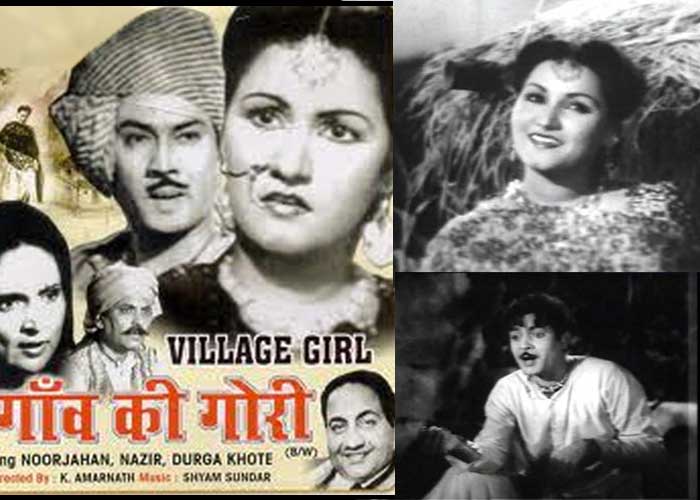
As newly independent India evolved at breakneck pace, so did it's cinema. The Fifties were the golden age of Bollywood, with the first wave of superstars – Raj Kapoor, Dilip Kumar, Madhubala, Nargis and others.
Quote:
Awaara (1951)
Director: Raj Kapoor
Cast: Prithviraj Kapoor, Nargis, Raj Kapoor, Leela Chitnis, K N Singh and Shashi Kapoor
Directed and produced by legendary actor Raj Kapoor, Awaara became an overnight sensation not just in India but also in South Asia, the Soviet Union, and the Middle East. The film featured four of the Kapoors, well on it's way to becoming the first filmy dynasty - Prithviraj and Raj Kapoor played father and son on-screen, and Shashi Kapoor played the younger version of Raj. His grandfather, Dewan Bashwanath Kapoor, appeared in a cameo role. Awarawas the first film in which Raj Kapoor played the poor tramp character he based on Charlie Chaplin and would go on to play in later movies also. The film was nominated for the Grand Prize at the Cannes Film Festival in 1953.
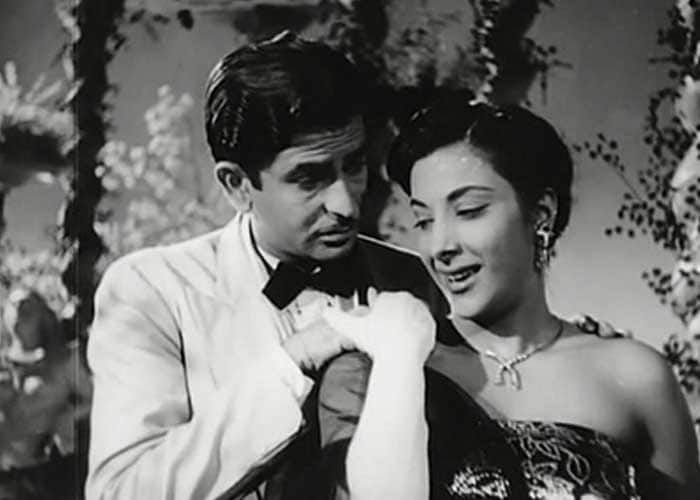
Quote:
Do Bigha Zameen (1953)
Director: Bimal Roy
Cast: Balraj Sahni, Nirupa Roy, Ratan Kumar, Jagdeep, Murad, Nana Palsikar and Meena KumariBimal Roy directed Do Bigha Zameen after watching Italian filmmaker Vittorio De Sica's Bicycle Thieves(1948), a movie that was to also inspire another acclaimed Bengali director later – Satyajit Ray. A gritty examination of socio-economic conditions, the film was the first to win the Filmfare Best Movie Award and the first Indian film to win the International Prize at the Cannes Film Festival.
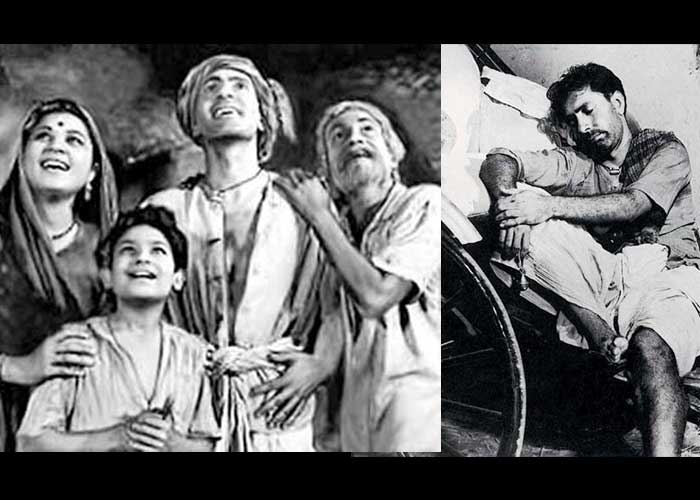
Quote:
Shree 420 1955
Director: Raj Kapoor
Cast: Raj Kapoor, Nargis and NadiraRaj Kapoor reprised his 'little tramp' role in this story of a country boy seduced by the glamour of the big city. The song Mera Joota Hai Japani became hugely popular and a patriotic symbol of independent India.
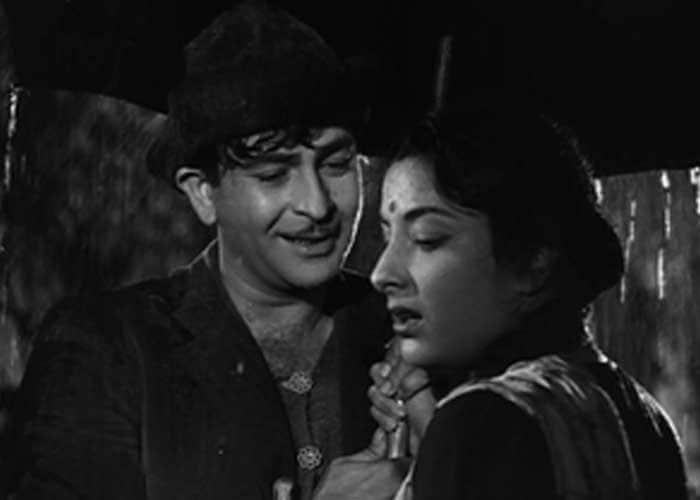
Quote:
C I D. (1956)
Director: Raj Khosla
Cast: Dev Anand, Shakila and Waheeda RehmanWaheeda Rehman's debut film featured her in a small role as a vamp who meets a sticky end. Dev Anand plays a cop in this crime thriller and O P Nayyar provided a stellar soundtrack.
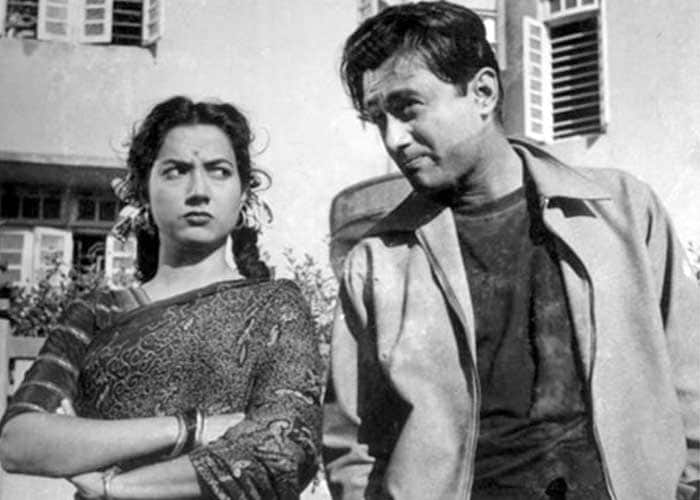
Quote:
Mother India (1957)
Director: Mehboob Khan
Cast: Nargis, Sunil Dutt, Rajendra Kumar and Raaj KumarEasily Bollywood's most important film ever made, Mother India was a remake of Mehboob Khan's 1940 film, Aurat. The film was India's first submission for the Best Foreign Language Film Oscar in 1958 and was chosen as one of the five nominees. It lost to Federico Fellini's Nights of Cabiria by a single vote.
Telling the story of Radha, a poverty-stricken woman abandoned by her husband, her arduous journey raising two sons, and the moral choices she has to make, Mother India was the first film to put India on the world map.
The film swept the Filmfare Awards, including the Best Actress prize for Nargis who also scooped up the top honour at the Karlovy Vary International Film Festival for her extraordinary portrayal of Radha.
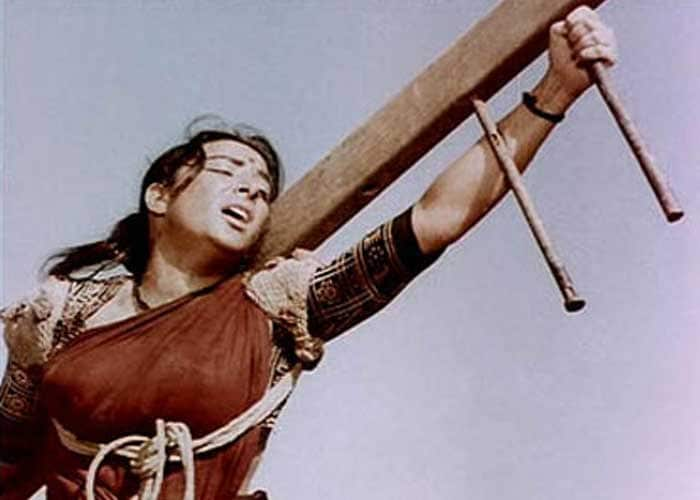
Quote:
Naya Daur (1957)
Director: B R Chopra
Cast: Dilip Kumar, Vyjayanthimala, Ajit, Chand Usmani and JeevanEconomic churn in independent India inspired B R Chopra's tale of small town tongawallahs who's livelihood is threatened when the son of a rich landlord starts a bus service. The film also became infamous because of an extended court case in which Mr Chopra sued Madhubala, the original heroine, for dropping out after 15 days of shooting. In absolute filmy style, a stern patriarch was to blame – Madhubala's father considered the outdoor shoot schedule a mere ruse for Dilip Kumar to romance his daughter – and Mr Chopra dropped the case after the court ruled in his favour to save Madhubala from a prison sentence.
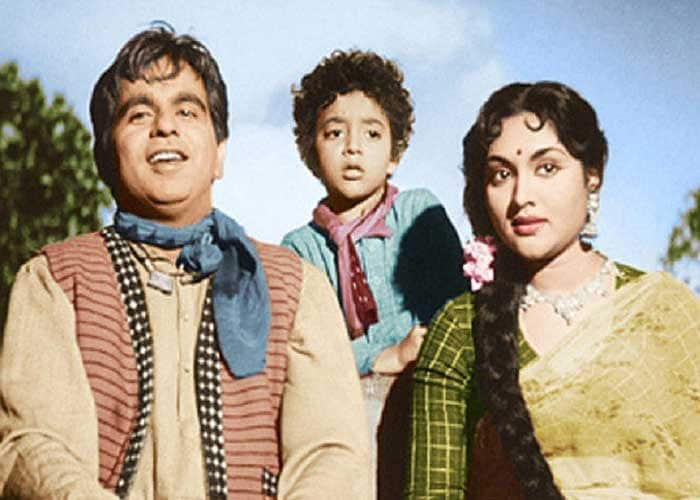
Quote:
Pyaasa (1957)
Director: Guru DuttCast: Guru Dutt, Mala Sinha, Waheeda Rehman, Johnny Walker and RehmanPyaasa tells the story of struggling poet, Vijay, trying to establish his identity in a corrupt and materialistic world. The film was rated as one of the 100 best films of all time by Time magazine. The story is also rumoured to be partly based on lyricist Sahir Ludhianvi's failed college romance with author Amrita Pritam.
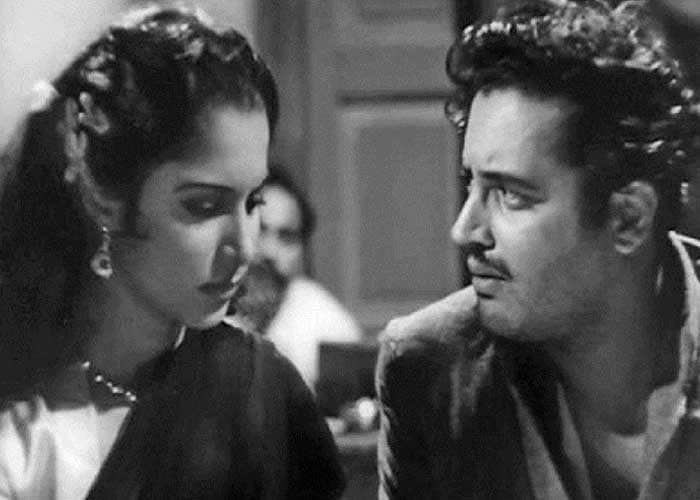
Quote:
Madhumati (1958)
Director: Bimal Roy
Cast: Dilip Kumar, Vyjayanthimala, Johnny Walker and Pran
Among the earliest films to deal with reincarnation, the darkly beautiful Madhumati won nine Filmfare awards, a record it held for the next 37 years until the release of Dilwale Dulhania Le Jayenge which won ten awards. The film inspired many later re-incarnation themed movies including SRK hit Om Shanti Om.
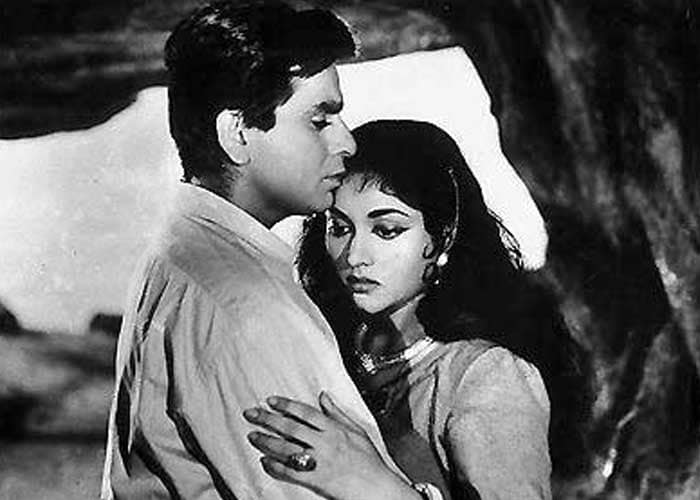






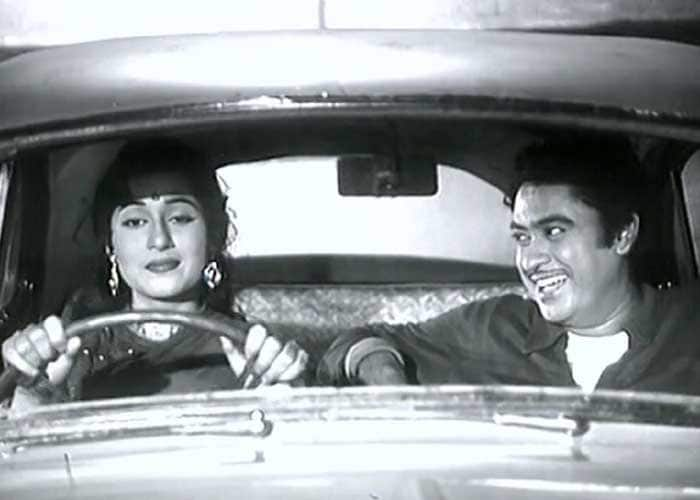
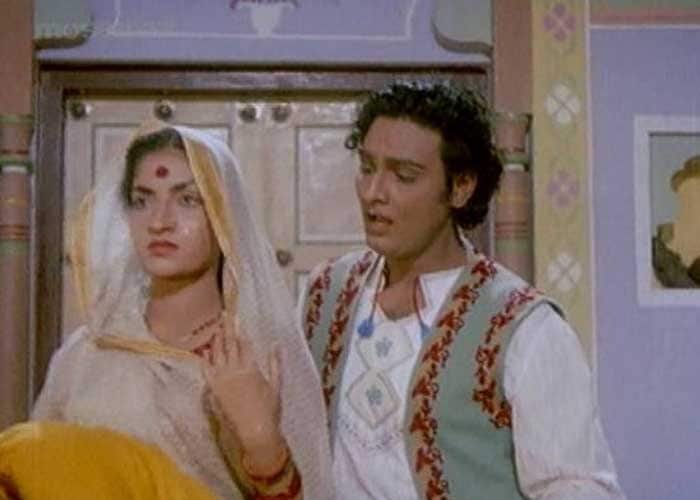


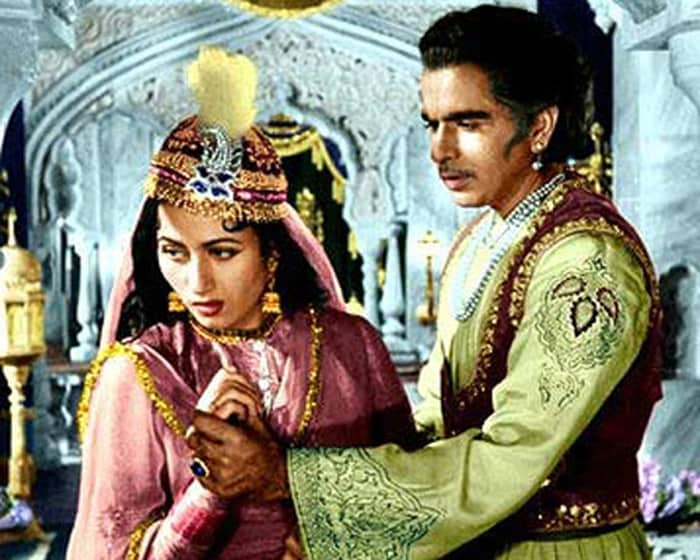
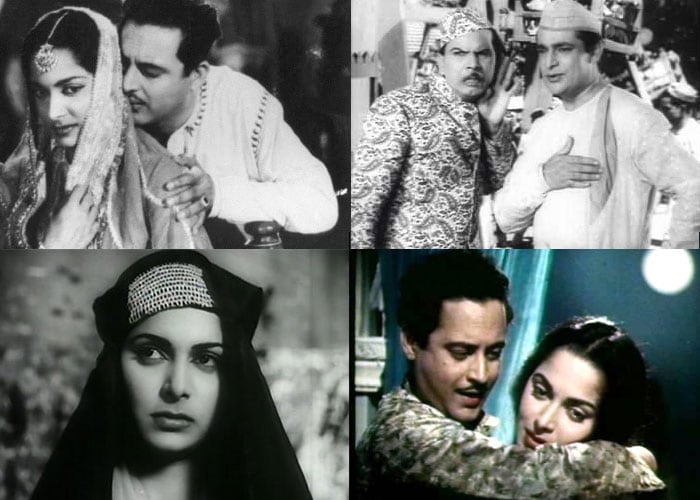
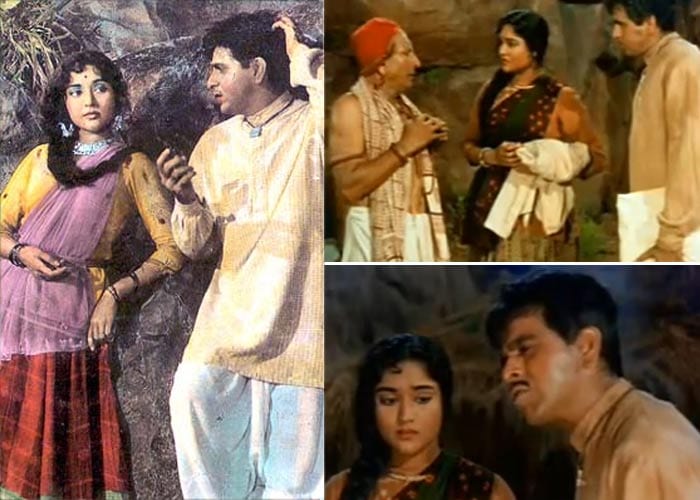
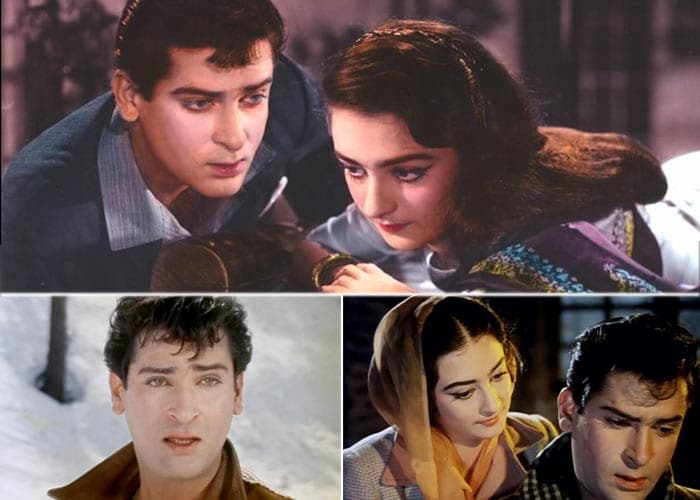
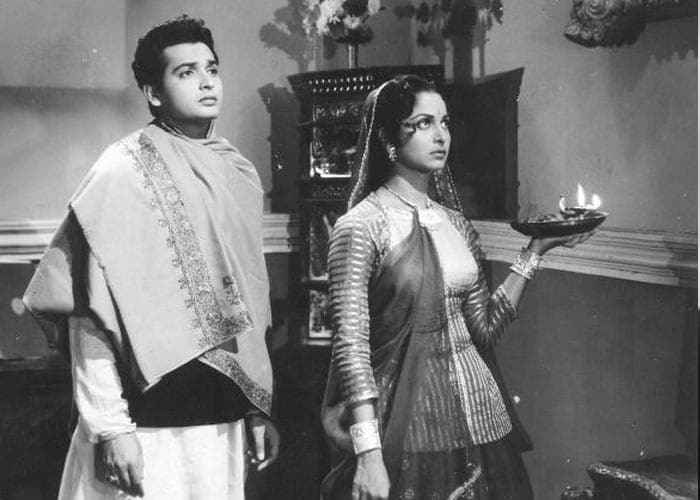
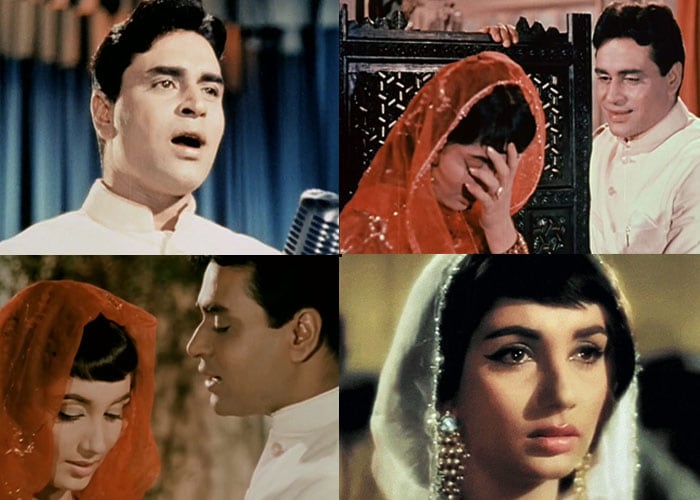
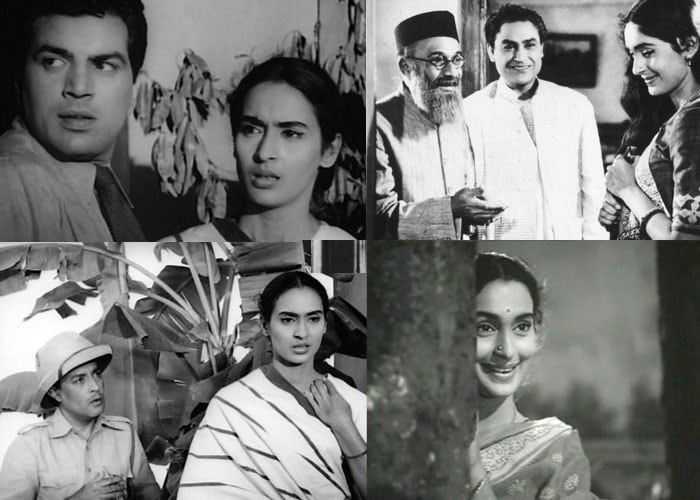
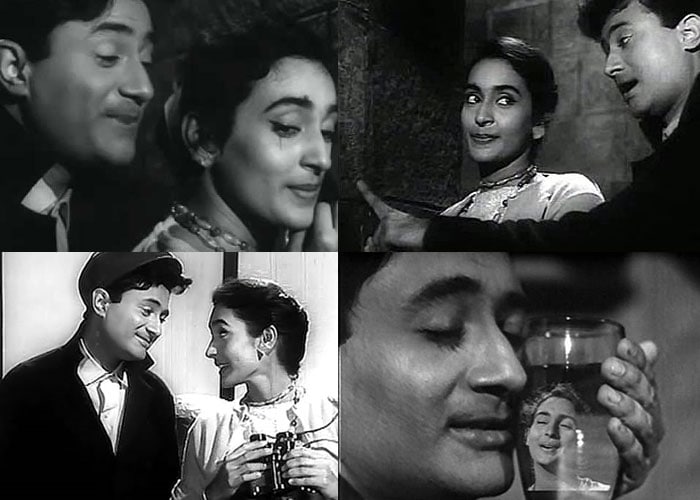
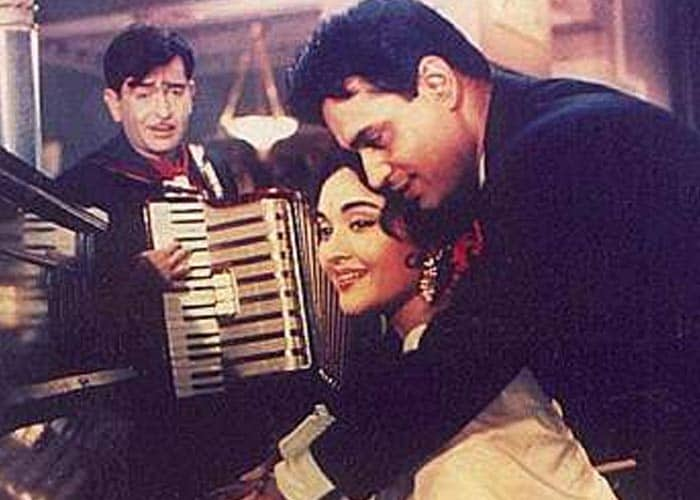
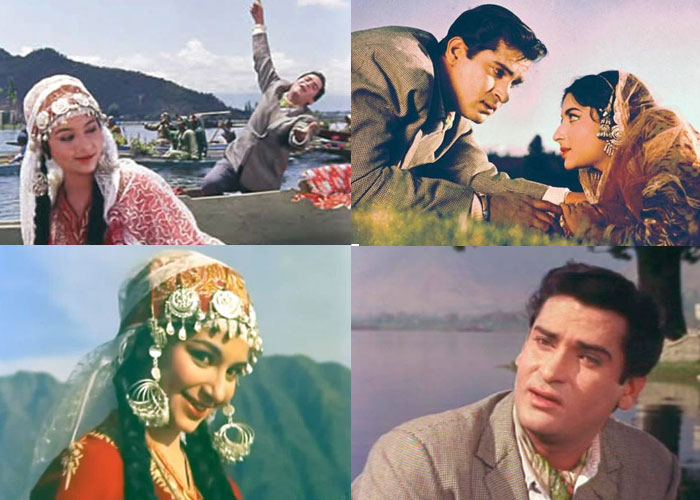
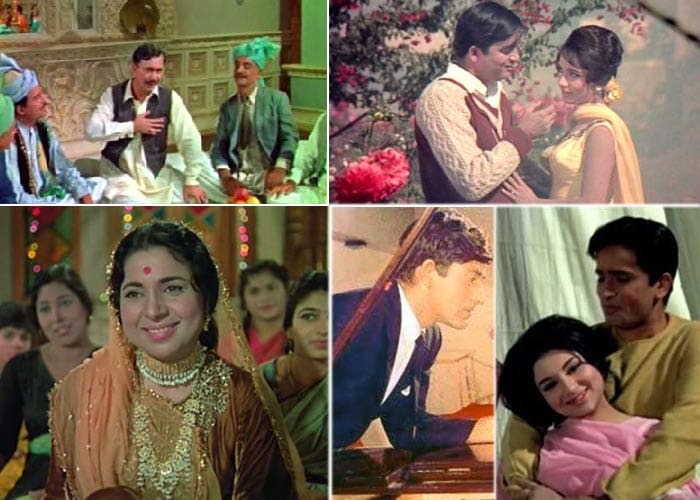

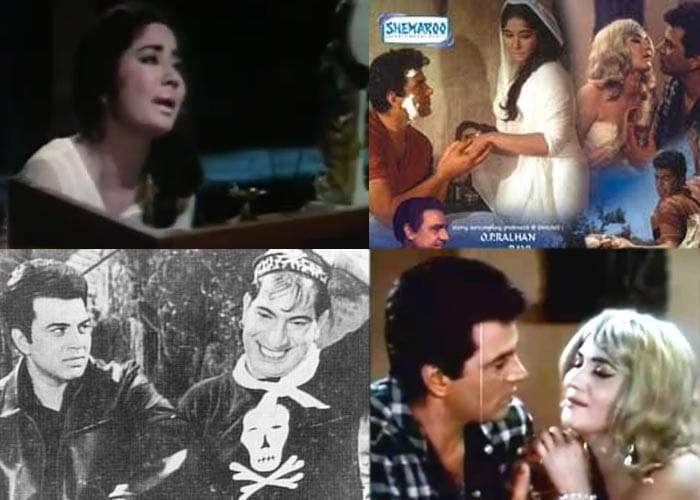









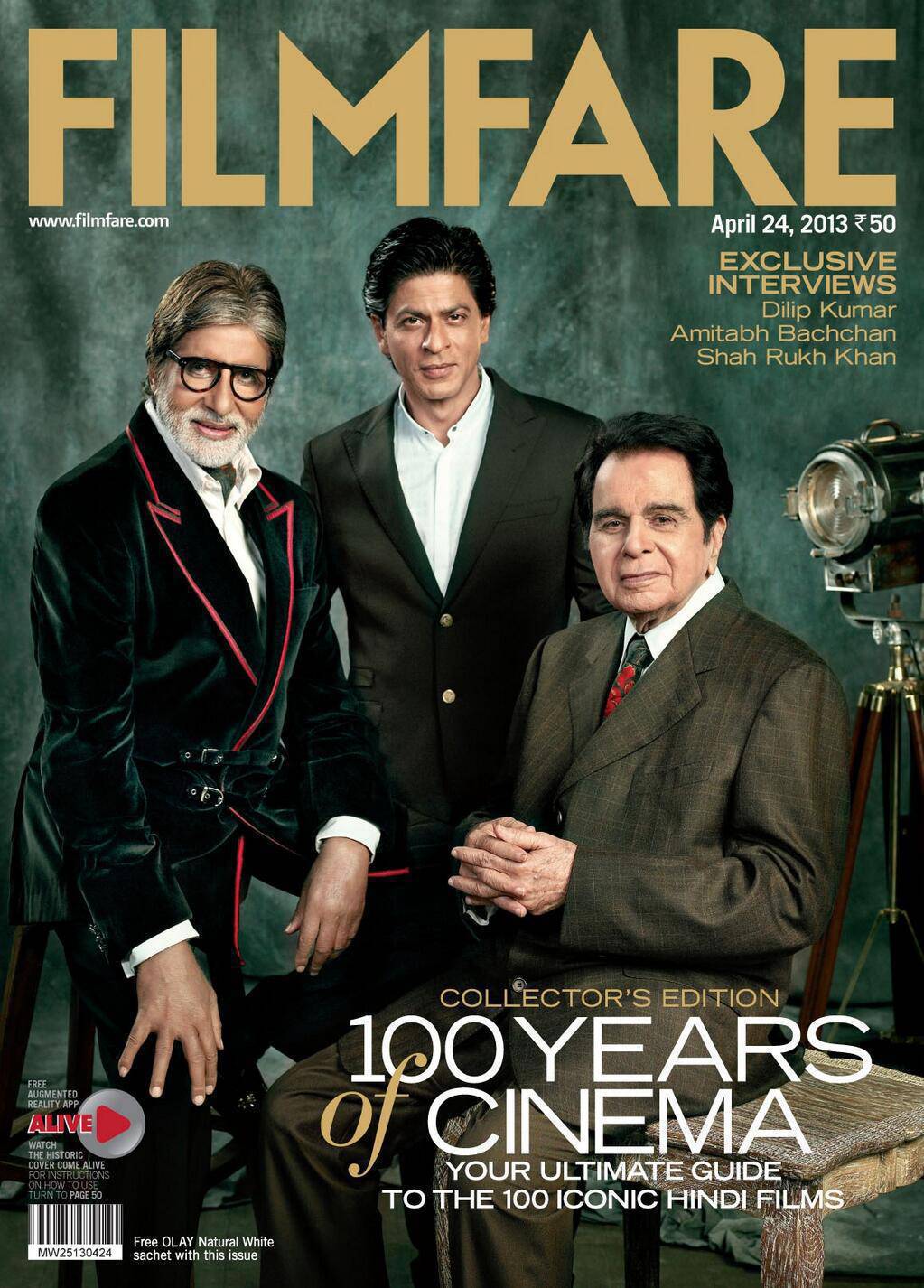





















1